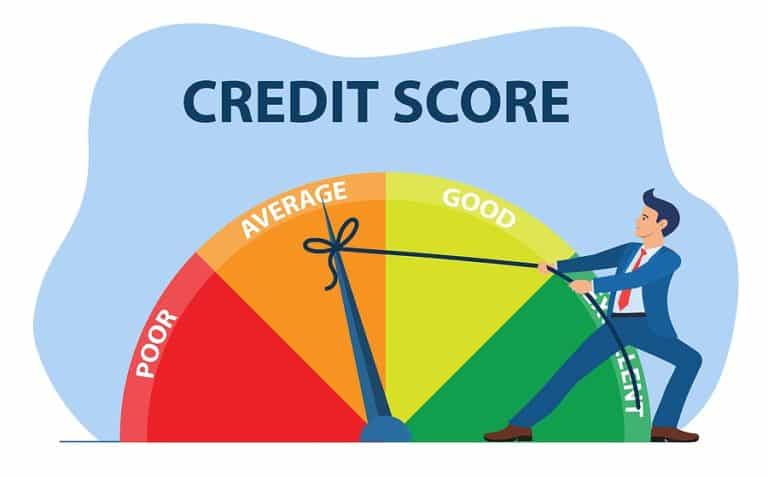
Credit scores are three-digit numbers that measure how responsible you are when it comes to managing money and repaying debt. These scores are generated by the information that’s contained in your credit report, so it follows that to have a credit score, you must first have a credit history.
Can you improve your credit score if you have a limited or no credit history? Yes, you can, but first it’s important to understand a little bit about how credit scoring works.
- A credit score is a three-digit number that measures how responsibly you manage money and repay debts.
- Credit scores are calculated using the information in your credit report, and there are different credit scoring models that may apply.
- Everyone’s credit score starts off differently, though the lowest credit score you can have is 300.
- Some of the best ways to improve your credit score quickly when you have no credit history include becoming an authorized user, opening secured credit cards, or getting a small loan in your name.
How Credit Scoring Works
Credit scores don’t magically appear out of thin air; instead, they’re calculated using different credit scoring formulas. The FICO credit score model is the one used by 90% of top lenders in credit decisions.1 VantageScore is another credit scoring model.
Both models use the information contained in your credit report to calculate credit scores. A credit report contains details of your past financial history, including:
- Number of credit accounts you have in your name
- Balances and payment history for those accounts
- Inquiries for new credit applications
- Public records, including judgments, bankruptcies, and foreclosure proceedings
If you have no credit history, there may not be much information on your credit report. This, in turn, can make it difficult to calculate a credit score. According to the Consumer Financial Protection Bureau, an estimated 45 million Americans are “credit invisibles,” meaning they don’t have enough credit history to generate a score.
Where Does Your Credit Score Start?
Having no credit history doesn’t necessarily mean your credit score starts at zero. That’s because the FICO and VantageScore credit models don’t go that low. Instead, the lowest possible credit score you can have with either model is 300. A score of 850 is the highest score you can achieve.
If you have no credit history at all, then you likely have no credit score. Once you begin to build and improve credit, your score may start at 300 and climb from there. So what affects your credit scores?
The short answer is that it depends on the credit scoring model. As FICO scores are most widely used by lenders, here’s a breakdown of how these scores are calculated:
- Payment History—Thirty-five percent of your FICO score is based on payment history, with on-time payments helping your score and late payments hurting it.
- Credit Utilization—Thirty percent of your FICO score is based on credit utilization, which is the amount of your available credit limit you’re using at any given time.
- Credit Age—Fifteen percent of your FICO score is based on your credit age, which is the length of time you’ve been using the credit.
- Credit Mix—Ten percent of your FICO score is based on the types of credit you’re using, such as revolving credit lines or installment loans.
- Credit Inquiries—Ten percent of your FICO score is based on how often you apply for new credit, which results in a hard credit check.
Fastest Ways to Build Credit
Improving your credit score when you have no credit history can be challenging. Still, there are some ways to build credit from the ground up, some of which may yield benefits faster than others. If you want to establish credit quickly, here are some of the best ways to do it.
Become an Authorized User
Authorized users have charging privileges on someone else’s credit card, but they aren’t responsible for the debt. Becoming an authorized user can allow you to piggyback on someone else’s good credit history and start building credit right away.
The account will show up on your credit report as well as on the original account holder’s. As long as they’re practicing good credit habits—such as paying on time and keeping the card balance low—their positive account history is reflected on your credit report.
Apply for a Secured or Credit Builder Card
Secured credit cards are designed for people with bad credit or no credit at all. These cards typically require a cash deposit to open, which doubles as your credit line. As you make purchases, your credit limit is reduced. As you pay your bill each month, you can free up available credit.
If you want to build credit with a secured card quickly, the easiest way to do it is to pay on time. Remember that with FICO credit scoring, payment history carries the most weight. You could begin to see a positive movement in your credit score after just a few months if you pay on time consistently.
Try a Store Credit Card
Most store credit cards offer charging privileges only at the issuing store and its brands or partners and work the same as other credit cards, though they may be easier to get approved for compared with traditional credit cards. Some may even offer rewards on purchases.
What you have to watch out for, however, are the annual percentage rate (APR) and the credit limit. Because store credit cards may have lower credit requirements for approval, they may charge a higher APR, which means that carrying a balance on one of these cards month to month could cost you more money. And a low credit limit means that you could max your card out quickly, leading to a higher credit utilization ratio, which can lower your credit score.
Get Credit for Rent and Utility Payments
Rent and utility payments are not automatically factored into your credit score calculations, but there are services that can help you get them included, allowing you to build credit more quickly. Experian Boost, for example, is a free service that can help you raise your credit score by reporting payments for utilities, phone, and streaming services. According to Experian, the average user saw an increase in their FICO 8 credit score of 13 points as a result.
This service may be worth looking into if you don’t have any credit cards or loans in your name for the time being. Just keep in mind that any credit score changes associated with Experian Boost would only be reflected in the FICO 8 version of your score.
As there are multiple FICO versions lenders can use to evaluate credit, if a lender is checking something other than FICO 8 when you apply for a loan, you may not see much benefit from having these payments reported on your credit history.
What Is a Good Credit Score?
A good credit score is defined differently, depending on which model you’re using. A good FICO credit score is anywhere from 670 to 739. Anything below that would be fair or poor credit, while anything above it is either very good or exceptional credit.9
What Is a Credit Report?
A credit report is a collection of information about your financial history. Creditors report information to the credit bureaus, including the date new accounts are opened, applications you submit for new credit, payment history, and balances. This information is used to produce your credit report and credit scores.
What Is the Fastest Way to Increase Your Credit Score?
The fastest ways to increase your credit score include paying bills on time, becoming an authorized user, increasing credit limits without increasing your balances, and paying off debts. Keep in mind, however, that it may take several months to see significant improvements in your score.
The Bottom Line
Improving your credit score when you have no credit history may not be an easy task, but it can be worthwhile to put in the effort. The higher your credit scores, the easier it may be to get approved for new loans or lines of credit. Higher credit scores can also translate to lower interest rates, saving you money when you borrow. Taking steps to open a secured or retail card, as well as becoming an authorized user, are just some of the ways you could start building credit fast.
























